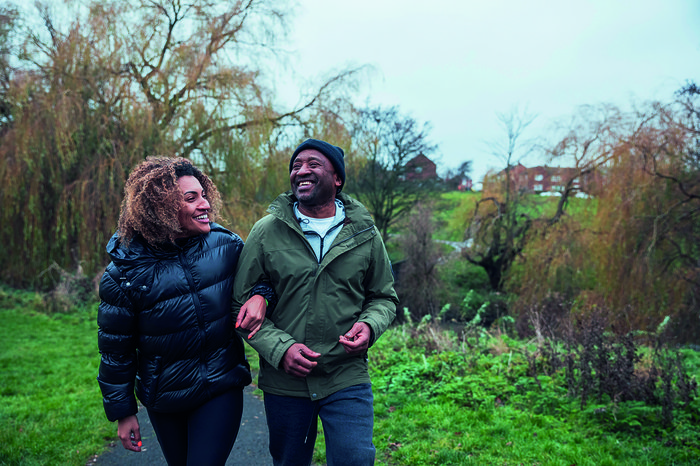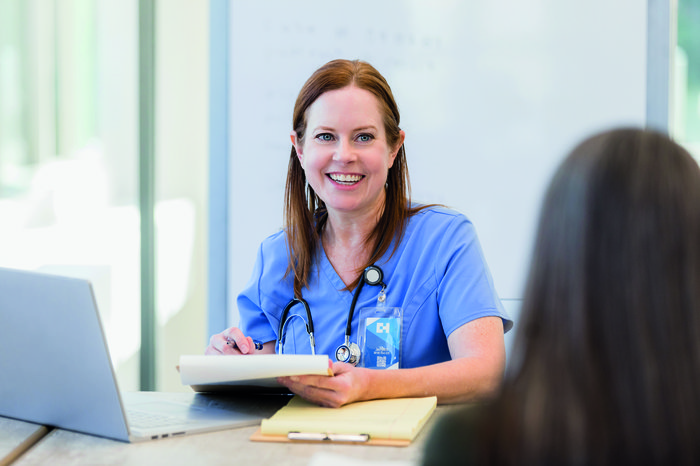Cancer can cause a large number of symptoms and it is impossible to list them all here. However, not all unusual or new symptoms are due to cancer. If you have specific concerns about any problems you may be experiencing, please speak to your GP or kidney doctor.
Am I more likely to get cancer because I have CKD?
People with kidney problems may be more at risk of cancer. This risk increases as your kidney disease gets worse.
Does having a kidney transplant increase the risk of me developing cancer?
Yes, people who have received a kidney, or joint kidney and pancreas transplant, are more at risk of developing certain kinds of cancers. This is due to the immunosuppression therapy you receive after transplant. Your immune system fights infections and can also find and destroy cancer cells. Suppressing it helps to stop your body rejecting your transplant, but can also affect its ability to detect cancer.
Here are some of the types of cancer that are more common in patients with kidney disease, especially those on dialysis and with kidney transplants:
- Lymphoma (cancer of the lymph nodes)
- Lung cancer
- Kidney cancer (both transplant and own kidney)
- Skin cancer, including melanoma
- Cancer of the gastrointestinal system (gut) such as bowel cancer.

How can I reduce my risk of cancer if I have had a kidney transplant?
We know that people with a transplant may be at particular risk of cancer of the skin. You should try to examine all your skin every month for any new marks, scabbed spots or changing moles. These may appear and grow quickly. Ask a friend or loved one to look at the parts of your body you cannot see, such as your ears and back. Report any concerns to your doctor immediately. It is important that you follow advice about avoiding the sun as much as possible and always use a high-factor sunscreen.
Can cancer lead to kidney disease?
Yes. A side effect of some cancer treatments is kidney damage. Sometimes cancer itself can lead to kidney problems, either through damage to the kidneys, or if the cancer is within the kidneys.

Should I be screened for cancer?
Cancer screening is a test that looks for early signs of cancer in people without symptoms. It can help spot cancers at an early stage, when treatment is more likely to be successful. You will be invited to attend as part of the national screening programme in the UK. If you have joined the transplant waiting list, you will also be screened for cancer.
Most people who are screened will not have cancer. If the screening detects a possible cancer, you will have more tests to look at this in detail. Most people who need extra tests aren’t found to have cancer.
Screening is important because if cancer is detected at an early stage it is easier to treat.
It is important that you consider taking part in any screening for cancer that you are offered by the NHS. This will be on the same schedule as patients without transplants. Examples of screening that you may be offered include:
- Cervical cancer screening (smear test) – women between the ages of 25 and 65.
- Breast cancer screening (mammogram) – women between the ages of 50 and 70.
- Bowel cancer screening – both men and women aged 55 and over.
- Lung cancer screening (targeted) – people aged 55 to 74 with a GP record of smoking will be assessed for screenings.
Public Health England also has a prostate cancer risk management programme for men over the age of 50, although this is not a formal screening programme at present.

How can I reduce the risk of cancer?
There are certain steps you are able to take that can reduce the risk of developing cancer:
- Stop smoking. Smoking greatly increases the risk of most cancers, as well as increasing the risk of a stroke or heart attack in the future. For advice on how to stop smoking, see www.nhs.uk/smokefree
- Eat a balanced diet including fresh fruit, vegetables and fibre. Avoid processed foods such as ready-meals, packaged sweet and savoury snacks and soft drinks. The dietitian at your kidney clinic can advise you on this.
- Take regular exercise. You should aim to exercise as often as possible - ideally every day and enough to get your heart rate up. This can be as simple as walking to the shops. Further advice is available at: www.nhs.uk/live-well/exercise
- Maintain a healthy weight. Your doctor or nurse will be able to advise you on what a healthy weiht for your height is, or you can calculate it yourself on the NHS website: www.nhs.uk/live-well/healthy-weight/. If your weight is falling and you can’t explain why, you should mention this to your doctor.
- Avoid too much sun exposure by wearing high-factor sunscreen (at least SPF 30 and ideally SPF 50) and staying out of the sun between 11am and 3pm. If you need to spend time outside in the sun, wear a wide-brimmed hat and a long-sleeved top. Do not use tanning salons or sun beds. You may need to take vitamin D supplements as a result of avoiding the sun. Your doctor can advise you about this.
- Avoid drinking too much alcohol. It is recommend that you drink no more than 14 units of alcohol (around six pints of normalstrength beer or four 250ml glasses of wine) per week. If you are on dialysis, you may have been asked to limit how much you drink (fluid restriction) – don’t forget that alcoholic drinks count towards this.
- Be aware of any changes in your body. Men should examine their testicles and women their breasts every three months for lumps. Check your urine or bowel motions (poo) in the toilet for blood every week. If you are concerned about anything unusual, discuss it with your doctor.
- The HPV vaccine helps protect against human papillomavirus (HPV). Some types of HPV are linked to an increased risk of certain types of cancer. It’s recommended for children aged 12 to 13 years old and people at higher risk from HPV. (www.nhs.uk/conditions/vaccinations/ hpv-human-papillomavirus-vaccine/)

Publication date: 09/2023
Review date: 09/2026